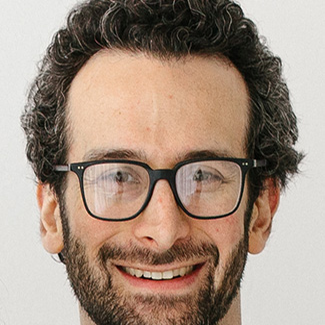Statistics Spotlight: Steve Howard Ph.D. ‘20
Steve Howard’s early interest lay in programming and was nowhere near statistics. As a high school student, he attended coding camps and competitions. Howard’s internships and other opportunities focused on programming and computer science throughout his education. Notably, Howard never found much interest in statistics growing up despite living under the same roof as a statistician.
“My mom was actually a biostatistician working in healthcare, doing what I now appreciate as pretty interesting work on medical studies, but it's funny because I was never really interested in what she was doing growing up,” Howard said.
After graduating from Harvard, Howard returned to the Bay Area to work as a software engineer at Google. Even during his three-year stint at Google, Howard’s work was unrelated to machine learning, data science, or statistics. In 2010, Howard joined a startup called Thumbtack, a local services website founded in San Francisco. Thumbtack would go on to enjoy a meteoric rise, most recently raising $275 million at a $3.2 billion valuation in 2021. 
“Basically like any startup or any tech company, we were running A/B tests, and no one at the company knew anything about statistics or experimentation. So I said, ‘I'll learn about it,’ and I ordered some textbook on statistics from Amazon and started reading. I started asking my mom questions and realized, ‘oh, this is kind of useful.’”
Howard would go on to teach himself more about statistics and machine learning, and it was clear his interests were piqued.
“I found it fascinating that in this field, even the most basic questions, like how to form a confidence interval for a conversion rate, did not seem to have straightforward answers.”
Despite not having a background in statistics, Howard was accepted into the Ph.D. program and enrolled at Berkeley in 2015. In the year between acceptance and enrollment he studied statistics to prepare himself, but once Howard started, he quickly realized that his thirst for knowledge was strong.
“Working in industry, you don’t get to spend that time learning and investing in yourself. It almost feels like an indulgent luxury just to spend all day every day reading books and thinking about stuff I want to think about and teaching myself or learning.”
Howard quickly found a collaborative department with a collegial cohort of graduate students and a rigorous academic environment with faculty willing to share their expertise. Advised by Adjunct Professor Jon McAuliffe (Ph.D. 2005) and former faculty member Jasjeet Sekhon, his thesis was titled “Sequential and Adaptive Inference Based on Martingale Concentration.” When reflecting on his time at Berkeley, Howard lauded how his degree gave him a solid foundation from which to solve real-life problems.
“That is what is great about going through the challenges of earning a Ph.D. at a place like Berkeley Statistics. I was able to get comfortable thinking from first principles rather than just applying a prepackaged kind of method to solving problems.”
Following graduation, Howard joined McAuliffe at the Voleon Group, one of the leading quantitative investment management firms, where he is a member of the research staff. Howard lives with his wife and two daughters in Orinda and serves on the Statistics Alumni Advisory Board.
-Alex Coughlin